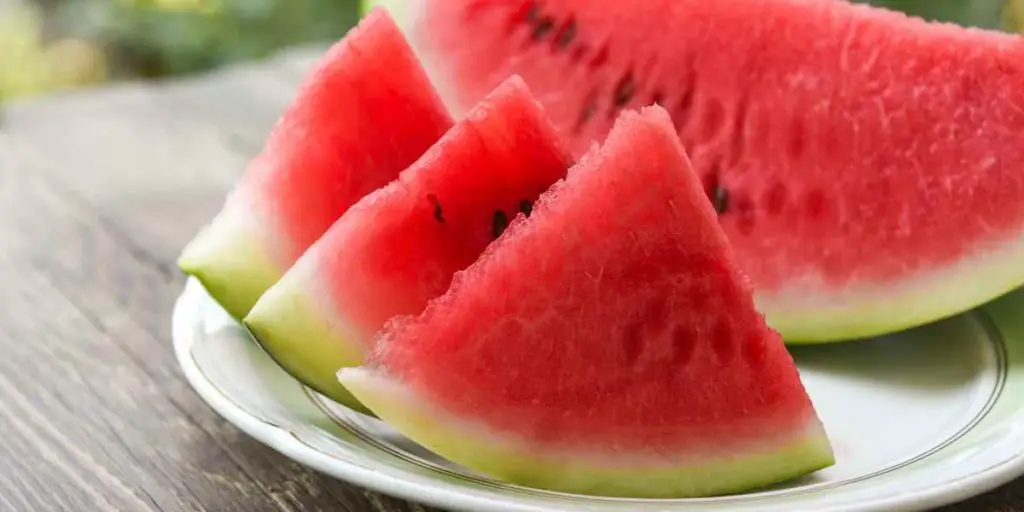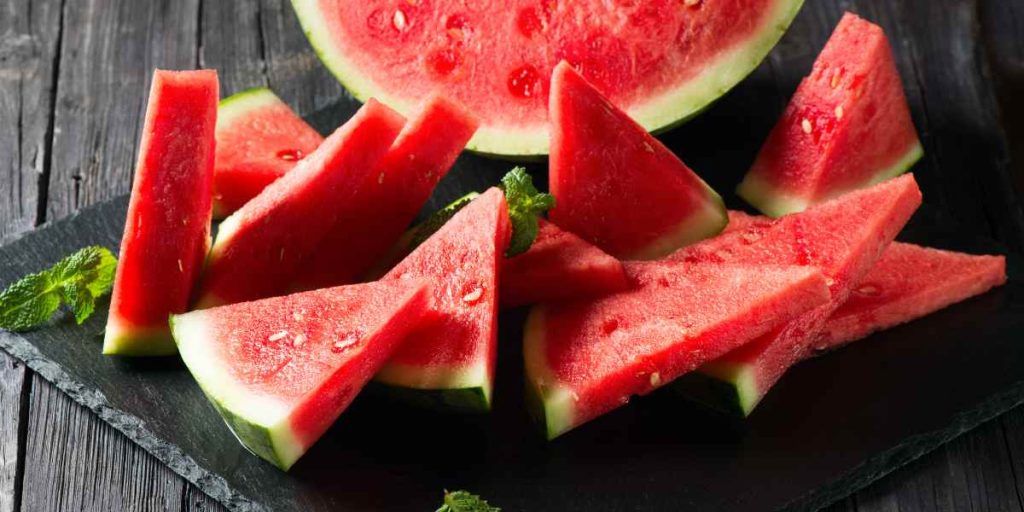Ultimate Guide : How much does a watermelon weigh
How much does a watermelon weigh Do you ever find yourself wondering how much a watermelon weighs? It’s a surprisingly common question, and one that can easily be answered. Watermelons can range in size and weight, and can weigh anywhere from 2 to 18 pounds. In this blog post, we’ll take a look at the factors that can affect the weight of a watermelon, and discuss some of the common sizes and weights that you can find. We’ll also talk about some of the benefits of eating watermelon, and why it’s such a popular summertime snack. So, if you’re curious to learn more about the weight of a watermelon, then keep reading!
General Information About Watermelons
Watermelons are a refreshing and popular summer fruit that come in a variety of shapes, sizes, and colors. The most common variety is the round watermelon, which can range from a few inches in diameter to several feet long. Other varieties include seedless watermelons, mini watermelons, and yellow watermelons.
Watermelons are typically made up of 92% water, so they are a great source of hydration. They are also high in vitamin C and a good source of lycopene, an antioxidant that helps protect cells from damage caused by free radicals. Watermelons are also a good source of Vitamin A and potassium, which are important for healthy vision, strong bones, and maintaining an optimal heartbeat.
Watermelons are typically consumed in their raw form, either as a snack or as part of a fruit salad. They can also be juiced, frozen, or cooked into dishes like watermelon salsa or grilled watermelon. Watermelon can also be made into jam or added to smoothies to add flavor and sweetness.
Factors that Affect Watermelon Weight

Watermelon weight is influenced by a variety of factors, including the variety of watermelon, the maturity of the fruit, and the growing conditions. Each of these factors can have a significant impact on the size and weight of a watermelon.
Variety: Different varieties of watermelon can vary in weight significantly. Heirloom varieties tend to be smaller than seedless watermelons, which can be quite large. Additionally, some varieties of watermelon are bred for their sweetness, while others are bred for their size and weight.
Maturity: The maturity of watermelons is an important factor in determining their weight. Ripe watermelons tend to be heavier than unripe watermelons. Additionally, the sugar content in ripe watermelons is higher than that of unripe watermelons, making them sweeter and more desirable.
Growing Conditions: The environment in which a watermelon is grown can have a significant impact on its weight. Watermelons grown in dry, hot climates tend to be smaller and lighter than watermelons grown in cooler, more humid climates. Additionally, watermelons grown in nutrient-rich soils tend to be larger and heavier than those grown in less nutrient-rich soils.
All of these factors can affect the size and weight of a watermelon. The variety, maturity, and growing conditions of a watermelon all influence its size and weight, and should be taken into consideration when selecting a watermelon.
Average Weight of a Watermelon

The average weight of a watermelon is approximately 8-10 pounds, although there can be considerable variation in size. For instance, the seedless variety of watermelon can weigh as little as 2 pounds, while a jumbo variety may weigh up to 40 pounds.
When comparing average weights of watermelons to other common fruits, a single watermelon is typically heavier than many other fruits, such as apples, oranges, and peaches. However, it is typically lighter than many other fruits, such as pineapples, cantaloupes, and honeydews.
When it comes to average weight ranges for different varieties, seedless watermelons typically weigh in at 2-4 pounds, while mini watermelons can range from 4-7 pounds. Medium watermelons can range from 7-10 pounds, while large watermelons can range from 10-15 pounds. Jumbo watermelons can range from 15-40 pounds.
No matter the variety, watermelons are a popular source of hydration and nutrition. They are high in antioxidants and vitamins, including Vitamin A, Vitamin C, and Vitamin B6. They are also a good source of lycopene, which is important for heart health.
How to Weigh a Watermelon

Weighing a watermelon is an important step when selecting a watermelon at the grocery store, farmers’ market, or from your own garden. There are several methods you can use to determine the weight of a watermelon, including using a scale, estimating by size, and using online resources.
Using a Scale
The most accurate way to weigh a watermelon is to use a scale. You can use a kitchen scale, bathroom scale, or a specialized produce scale. Place the watermelon on the scale and read the weight.
Estimating by Size
If you don’t have access to a scale, you can estimate the weight of the watermelon based on its size. Generally, a watermelon that is about 10 inches long and 6 inches in diameter will weigh about 7-8 pounds. A smaller watermelon of the same shape will weigh less and a larger one will weigh more.
Using Online Resources
You can also use online resources to determine the weight of a watermelon. Most grocery stores and farmers’ markets will have information about the approximate weight of their watermelons. Additionally, some websites offer calculators that can help you estimate the weight based on the size of the watermelon.
Tips for Selecting a Watermelon
When selecting a watermelon, it’s important to take into account both the weight and the ripeness of the watermelon. A watermelon that is too light for its size may not be ripe enough to eat, while a watermelon that is too heavy for its size may be overly ripe. To check for ripeness, look for a dark green rind and a yellow spot from where it has been resting on the ground. Additionally, the watermelon should feel heavy for its size and make a deep thump sound when tapped.
Overall, weighing a watermelon is an important step when selecting a watermelon. There are several methods you can use to determine the weight of a watermelon, including using a scale, estimating by size, and using online resources. Additionally, when selecting a watermelon, be sure to take into account both the weight and the ripeness of the watermelon.
Conclusion : How much does a watermelon weigh
Watermelons are a popular summer fruit that can weigh anywhere from 10 to 25 pounds. The amount of a watermelon’s weight will depend on the size, variety and ripeness of the fruit. When shopping for a watermelon, look for one that feels heavy for its size and has a dull rind.
The average watermelon weighs about 15 pounds, so it’s important to keep your grocery budget in mind when shopping for a watermelon. If you’re looking for a smaller watermelon, try a seedless variety, which usually weighs less than a regular watermelon.
No matter the size or variety of watermelon, they are a delicious and refreshing fruit to enjoy during the summer months. Whether you’re looking for a sweet snack or a refreshing drink, watermelons are a great way to beat the heat.

